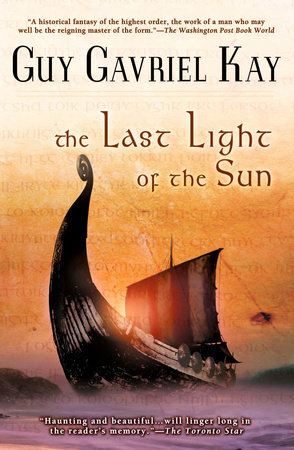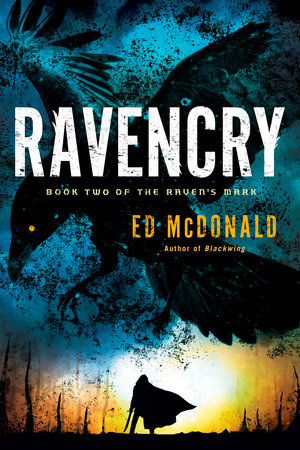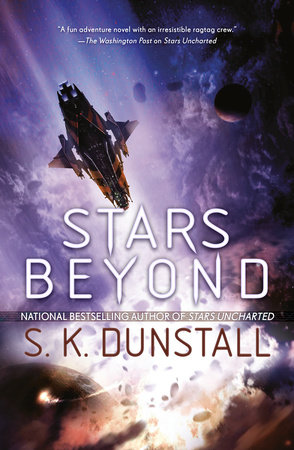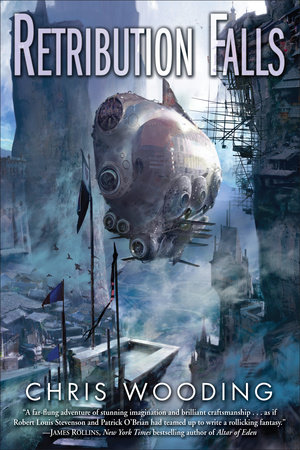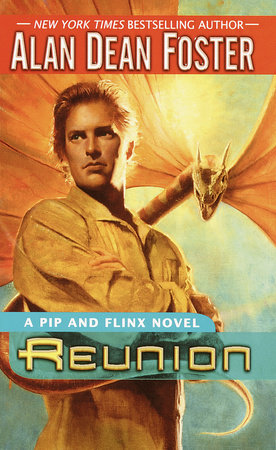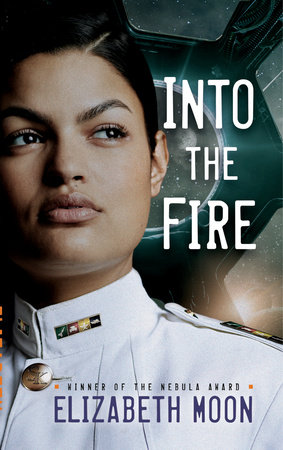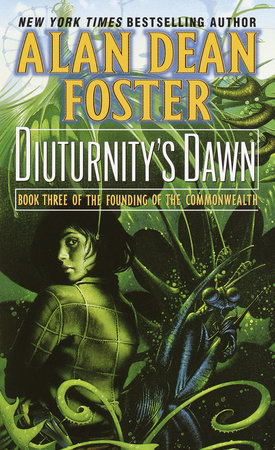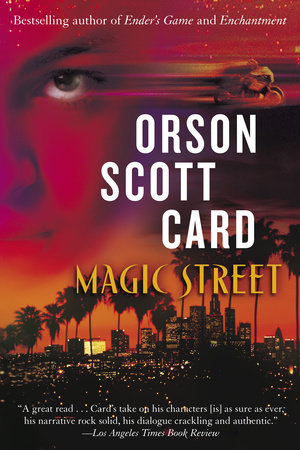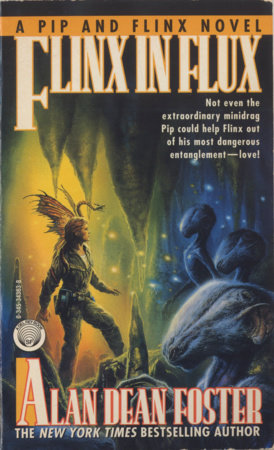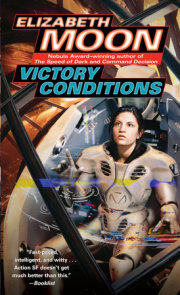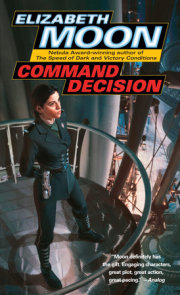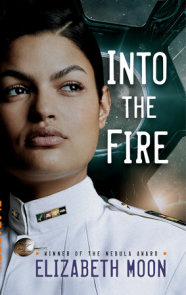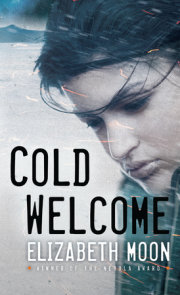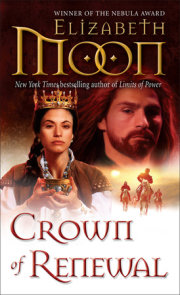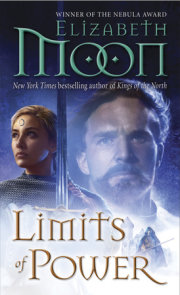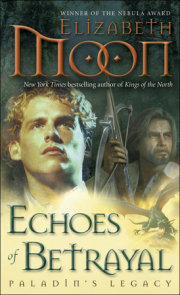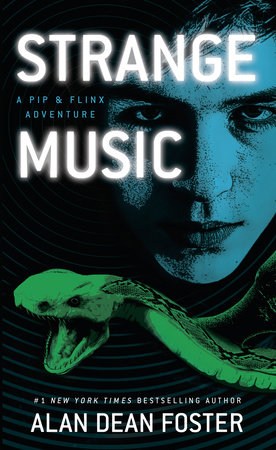Author Q&A
Interview with for Elizabeth Moon:
Question:Trading in Danger is a move back to military science fiction after your last book, The Speed of Dark, which, despite its sf elements, was in many ways a mainstream novel. Is military sf what you love best?
Elizabeth Moon:Not really…I like military SF and space opera (and especially where the two overlap), but I wouldn’t say it’s my favorite subgenre, just one of them. But it’s one I can write and enjoy the process as well as the product. It’s almost as much fun to write as it is to read.
Q:This novel is the first of a new series featuring Kylara Vatta, the young captain of an interstellar trading vessel. Does it take place in the same universe and/or the same time period as your Heris Serrano books?
EM:It’s a different universe. There are elements in this universe (such as modified humans, or humods) which don’t show up in the Serrano Legacy books.
Q:You refer to an event called the Scattering in the novel – what is its significance?
EM:That would be telling… Seriously, background elements introduced in a first book
of history don’t always need explanation, and I haven’t decided yet how much history to include.
Q:Describe Kylara for us, and her situation at the beginning of Trading in Danger. This is probably the first military novel I’ve read that begins with the main character being expelled from the military!
EM:Ky Vatta is the youngest child of a wealthy family whose wealth rests mostly on
interstellar trade, and partly on an agricultural near-monopoly. Her own determination to do something more exciting than shepherd trading ships got her into the Spacefleet Academy on her home planet. Her mother was appalled; the rest of the family were at first resistant, but finally decided that maybe having a private "hook" into the military would be a good idea.
Then, in her last term, she does something good (she thinks), unleashes a political storm as a result, and is expelled.
Q:How much of your Marine Corps experience goes into your military sf?
EM:Whatever seems relevant to a particular story, but with that goes research, including conversations with other veterans and active-duty personnel.
Q:In what ways is Kylara a self-portrait?
EM:She’s not, really. I’ve done enough military women now that I don’t feel Ky is working directly out of my background–she’s her own woman. She’s not even horse-crazy…<G> Seriously, a character must go beyond the writer in some way to become "alive" and interesting.
Q:Although there is plenty of military action in this novel, it’s really—as your title punningly points out—about mercantile concerns: “trade and profit,” in the oft-quoted phrase that seems to sum up the business philosophy of the Vatta family. Why did you take this approach?
EM:For the fun of it, basically. I’ve played around with a number of other themes relating to the military, starting with The Deed of Paksenarrion and continuing through Sassinak, and Generation Warriors, and then the seven books of the Serrano Legacy. Each has allowed me to consider a different aspect of military life, not just as it pertains to women, but in relation to culture, politics, etc. What, I wondered, would happen if you took someone trained as military, and removed the obvious support structure of a military organization? How much of the military training and attitudes would survive, especially if the character were young enough to still have some flexibility?
Q:Did you draw on particular periods of Earth’s history in creating the political and economic parameters of Kylara’s universe?
EM:Not consciously, although I’m sure the monopoly the I.S.C. has on instantaneous communication will remind people of Ma Bell’s monopoly….or maybe the old IBM…and some of the cultural concerns to be expressed later reflect attitudes about the global economy.
Q:I was reminded at times of Jack Vance’s space operas, especially The Demon Princes, in which trade often plays a central role. Do you count Vance as an influence? What other writers have influenced you?
EM:I’ve been influenced by just about everyone I’ve read, and that’s a list too long to remember or enumerate. Andre Norton, Jack Vance, Alexei Panshin, Poul Anderson, Keith Laumer…up through C.J. Cherryh, Lois Bujold, Debra Doyle and James Macdonald, Sharon Lee and Steve Miller. And a host of others, whose names will hit me an instant after I send this off…
Q:What lies ahead for Ky? One of her academy instructors, MacRobert, continues to take a special interest in her after her disgrace: could he be recruiting her for covert operations? After all, traders make good spies! I even found myself wondering if her expulsion, which seems unduly harsh, might have been engineered for just that purpose.
EM:What lies ahead for Ky is more trouble, of course. As for the other points…no, you don’t get to know that yet. Speculate all you want, but I’m not telling…<G>
Q:What are you working on now?
EM:The next book in the series. In which someone attempts to seduce Ky by peeling a lime, and a Jack Russell terrier pup shows up in a trash can (to the writer’s complete surprise, and Ky’s disgust.)
Q:When will it be published?
EM:I don’ t know when its scheduled date is, but my deadline is rapidly approaching!



